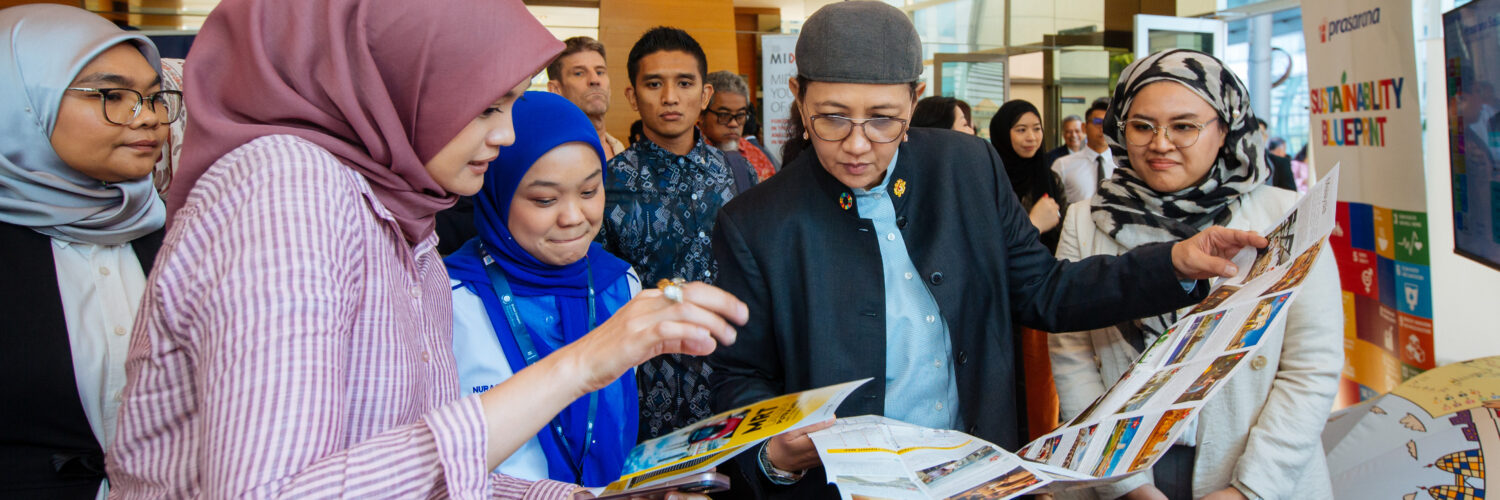By Aileen Anthony
With the theme “Accelerating Corporate Sustainability Commitments for a Resilient Future,” the symposium was anchored by addresses from YB Dato’ Hajjah Hanifah Hajar Taib, Deputy Minister of Economy, Datuk Sikh Shamsul Ibrahim Sikh Abdul Majid, CEO of the Malaysian Investment Development Authority (MIDA), as well as opening reflections from Faroze Nadar, Executive Director of UNGCMYB.
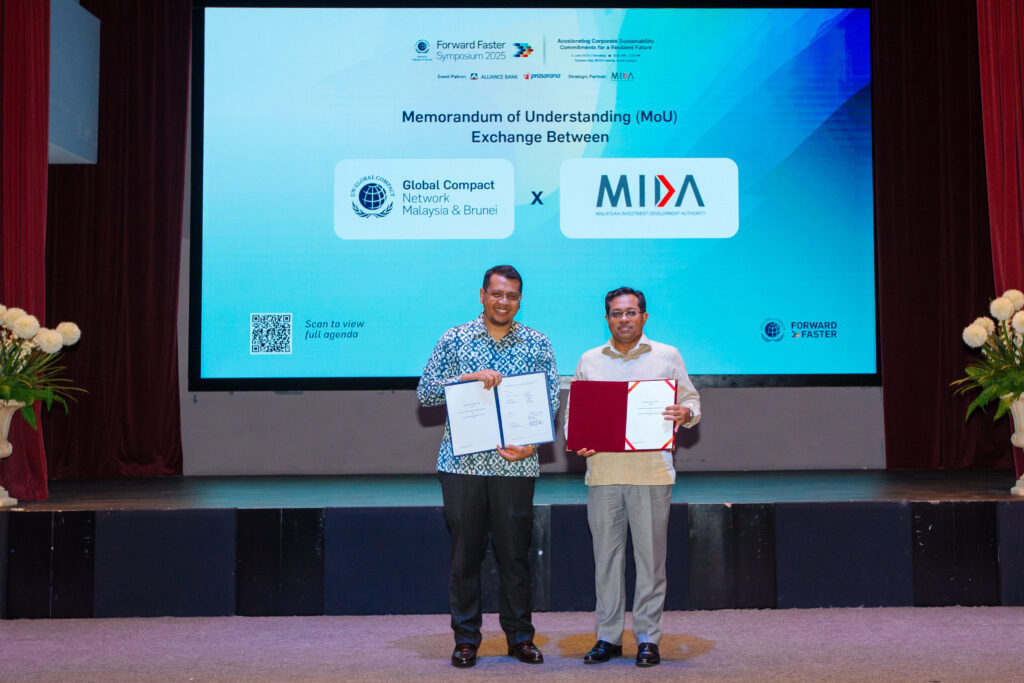
The symposium also witnessed a Memorandum of Understanding (MoU) exchange, where UN Global Compact Network Malaysia & Brunei formalised a strategic partnership with the Malaysian Investment Development Authority (MIDA) to enhance collaboration in promoting responsible business practices and advancing sustainability across Malaysian industries.
Why Forward Faster? Why Now?
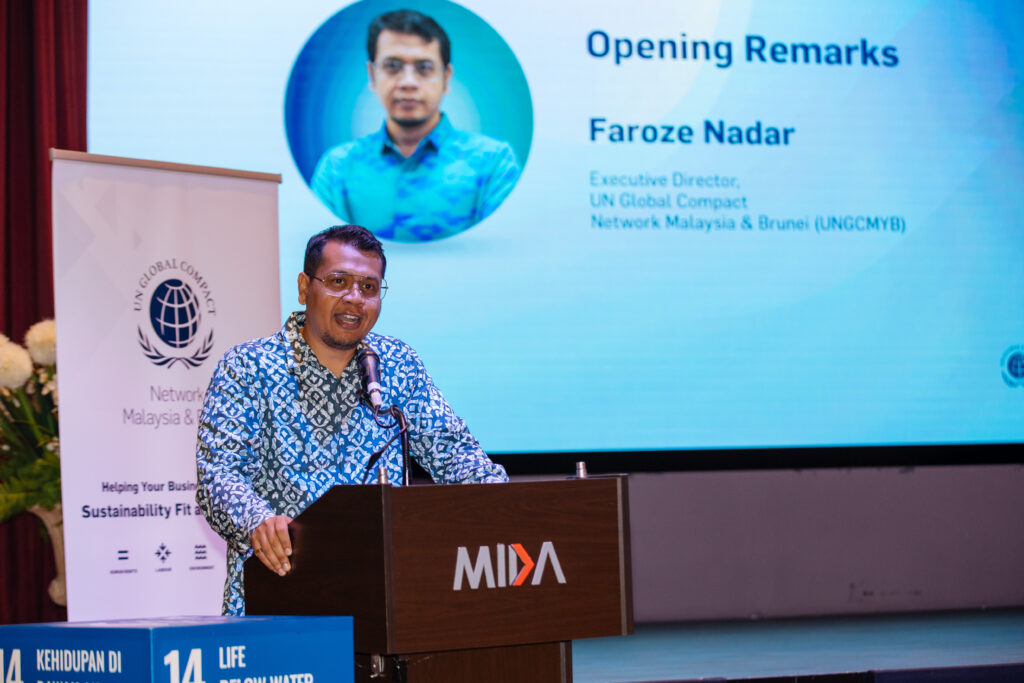
“Some of you may be wondering, what is this Forward Faster?” said Faroze as he opened the event with his signature warmth and insight. “If you read the official website, it offers a lengthy and clever overview. But I only have five minutes, so here’s my version.”
Forward Faster, he explained, is UNGC’s global call to businesses to commit to bold, measurable action in five key areas:
- Climate Action
- Living Wage
- Gender Equality
- Water Resilience
- Finance & Investment
“I like to think of it as the Pareto principle applied to sustainability—focusing on the 20% of actions that can drive 80% of the impact,” Faroze said. He added that commitments are more than corporate slogans; they are the bridge between belief and action. “And once you go public, you can’t go back,” he enthused.
To that end, Faroze mentioned UNGCMYB corporate members stepping up their sustainability commitments, adding, “These are not just pledges—they are sparks. Commitments are the building blocks of sustainability. And ambitious commitments? They can trigger a butterfly effect of change.”
National Direction, Institutional Drive
Malaysia is charting a decisive course toward becoming a low-carbon, high-income nation. Both Dato’ Hajjah Hanifah and Datuk Sikh Shamsul emphasised that sustainability is not a policy trend but a national imperative—deeply embedded in economic planning and international positioning.
“Malaysia’s journey toward sustainable development is at a critical inflexion point,” said the Deputy Minister. “Sustainability must be embedded into the very fabric of our economic, environmental, and social policies. It is no longer an afterthought.”
From the investment front, Datuk Sikh Shamsul added, “Our task is to shape Malaysia not just as a destination for capital but as a regional and global hub for quality, innovation, and sustainability.”
Green Investments, Real Impact
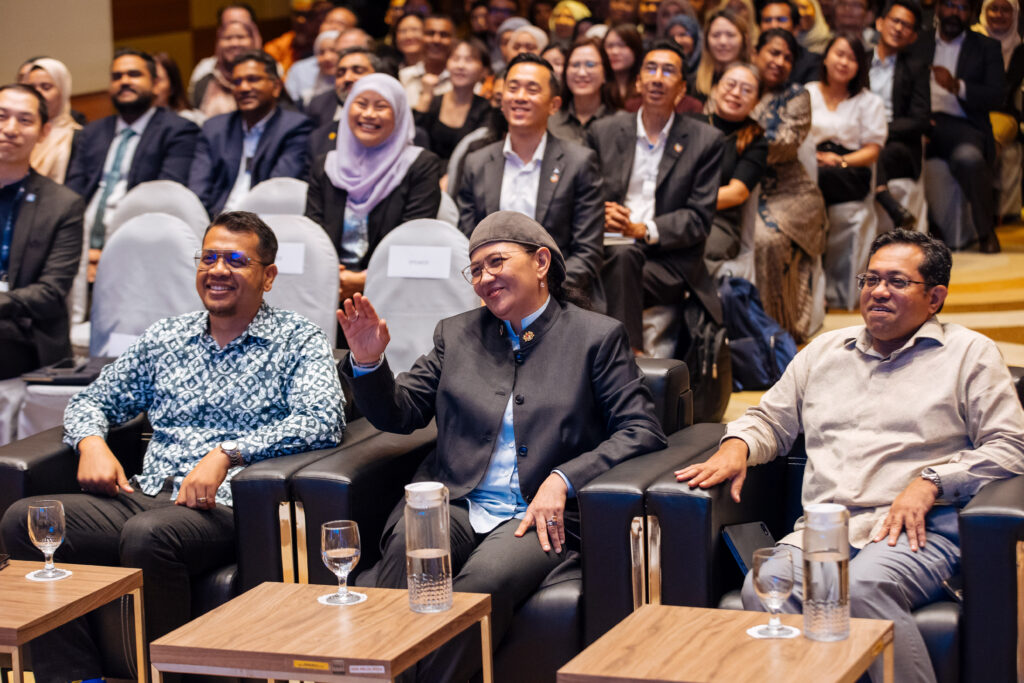
The year 2024 marked a turning point. With GDP growth at 5.1%, Malaysia laid the groundwork for accelerating green and digital transitions. Through MIDA, the government approved RM20.8 billion in green investments, part of a larger strategy to mobilise RM300 billion by 2030.
Beyond domestic achievements, Malaysia is attracting global players. A significant MoU between MIDA and ACWA Power, the Saudi clean energy giant, sets the stage for 12.5 GW of renewable capacity by 2040.
ESG: From Compliance to Competitive Advantage
Malaysia is no stranger to environmental and social risks. Floods, heatwaves, and rising sea levels are now persistent threats. But instead of merely reacting, the government is integrating resilience into national planning—from AI-powered flood forecasting to climate-adaptive urban infrastructure.
The upcoming National ESG Strategic Plan (NESP) will guide businesses—especially small and medium-sized enterprises (SMEs)—toward achieving and exceeding ESG compliance. The plan complements national frameworks like:
- National Energy Transition Roadmap (NETR)
- New Industrial Master Plan 2030 (NIMP 2030)
- Madani Economic Framework
“We are not just responding to climate change,” said Dato’ Hajjah Hanifah, “We are turning it into an economic opportunity.” By 2050, Malaysia’s green transition is projected to:
- Attract RM1.3 trillion in technology investments
- Contribute RM120 billion to GDP
- Create 310,000 new jobs
- Grow renewable energy share from 25% in 2022 to 70%
The Corporate Challenge: Profit with Purpose
“Transformation at this scale cannot be achieved alone,” said Datuk Sikh Shamsul. “When institutions—public and private—internalise these values, we move from ambition to action, from strategy to societal transformation,” he added.
The Deputy Minister also called on businesses to:
- Set science-based climate targets
- Invest in circular economy models
- Commit to living wages and inclusive hiring
- Build resilient, green infrastructure
She posed a stirring challenge, “Ask yourself—what kind of corporate legacy are we building? Will our companies be remembered as extractors of value or as architects of resilience?”
Programme Features
The FFS2025 featured sessions, each spotlighting different dimensions of sustainable development, innovation, and leadership.
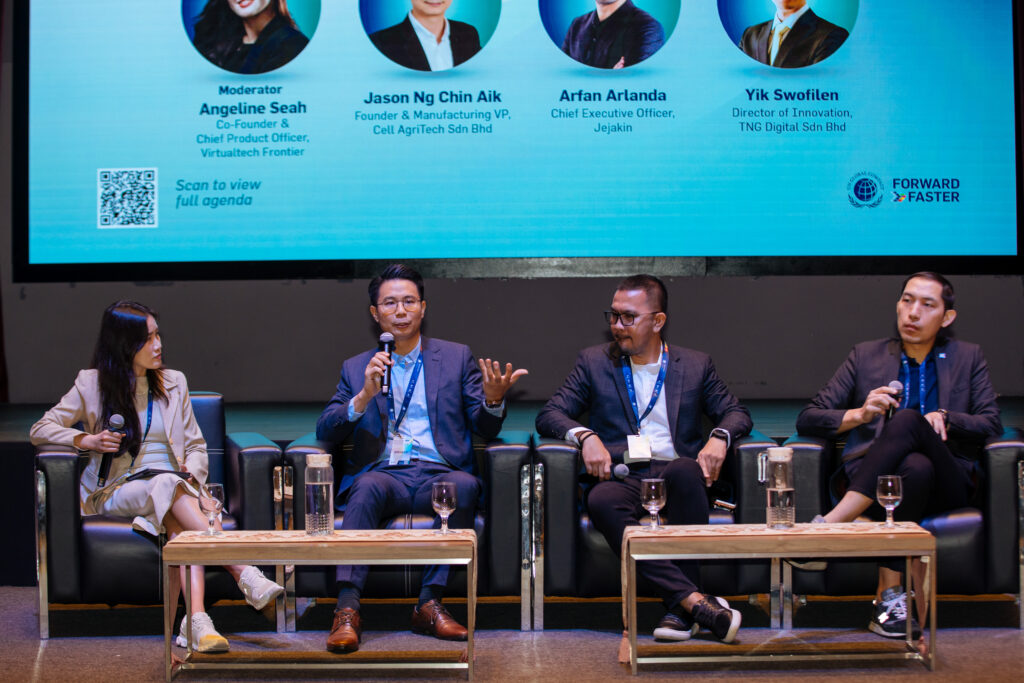
The first session, “The Trinity of Tech: Revolutionising Sustainability,” featured Jason Ng Chin Aik, Founder and Manufacturing Vice President of Cell AgriTech Sdn Bhd; Arfan Arlanda, Chief Executive Officer and Founder of Jejakin; Yik Swofilen, Director of Innovation at TNG Digital Sdn Bhd; and moderator, Angeline Seah, Chief Product Officer of Virtualtech Frontier. The panel discussed how digital, climate, and frontier technologies are transforming sustainability outcomes across various sectors.
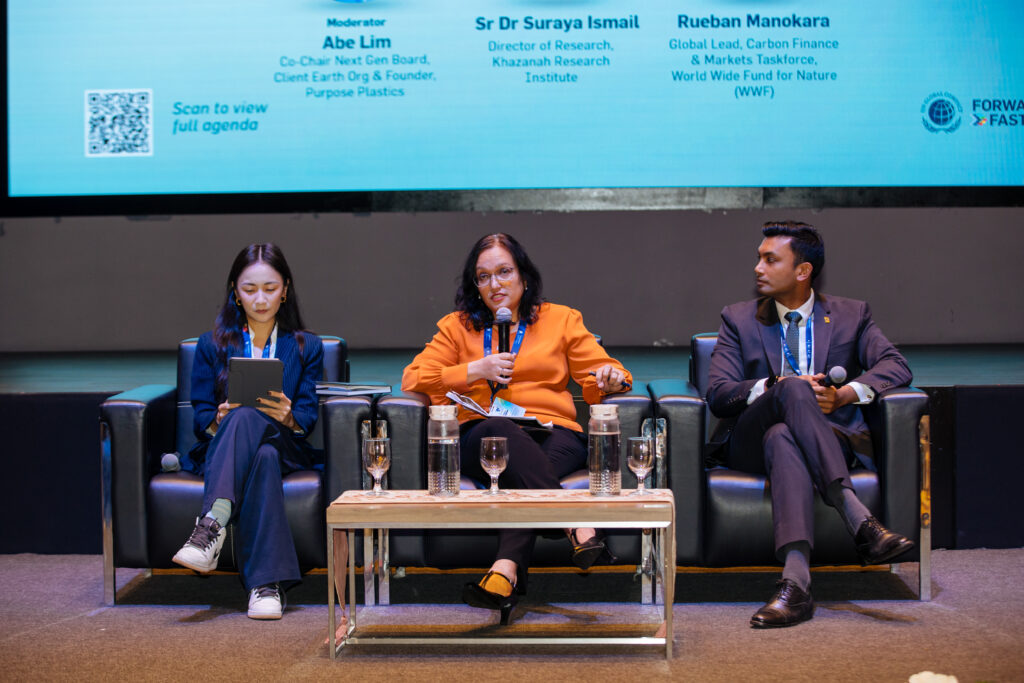
In the Fireside Chat: “Geopolitics, Inequality & the Climate Crunch,” Sr. Dr. Suraya Ismail, Director of Research at Khazanah Research Institute; Rueban Manokara, Global Lead of the Carbon Finance and Markets Taskforce at WWF; and moderator Abe Lim, Co-Chair of the Next Gen Board at Client Earth and Founder of Purpose Plastics, examined the intersection of climate justice, systemic inequality, and global climate finance mechanisms.
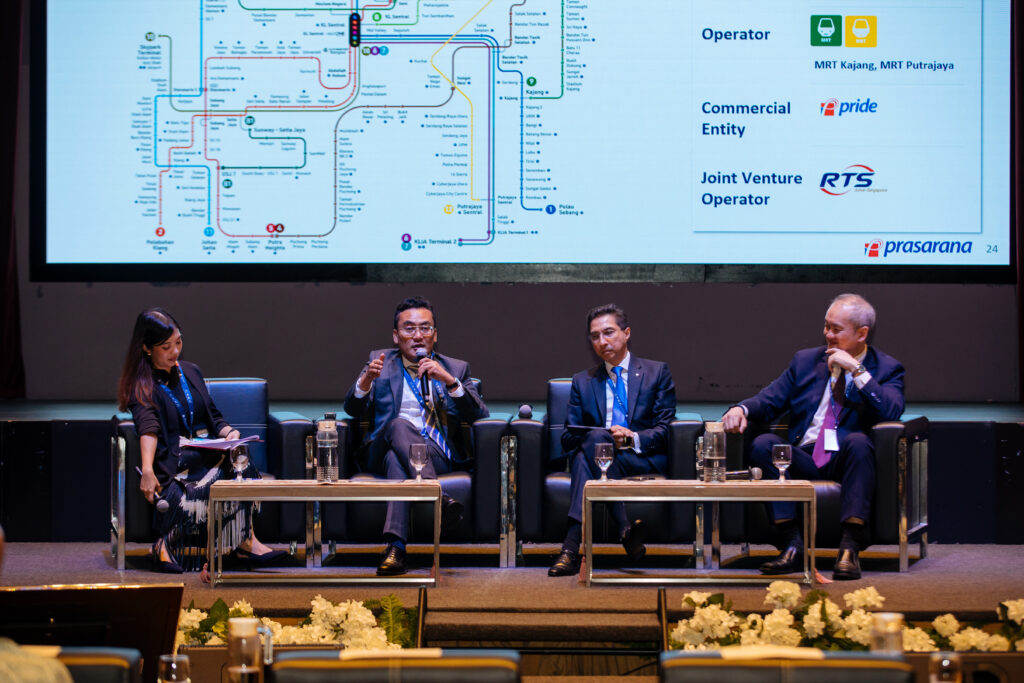
The session, “CEO Dialogue: Despite Headwinds, Sustainability Is Still Here to Stay,” featured Kellee Kam, Group Chief Executive Officer of Alliance Bank Malaysia Berhad; Dato’ Fad’l Mohamed, Chief Executive Officer of Bursa Malaysia Berhad; Mohd Azharuddin Mat Sah, President & Group Chief Executive Officer of Prasarana Malaysia Berhad; and moderator Su Lynn, Director of Communications & Sustainability at Astro. The dialogue highlighted how leading organisations are sustaining ESG momentum amid economic and geopolitical uncertainties.
From Commitment to Collective Action
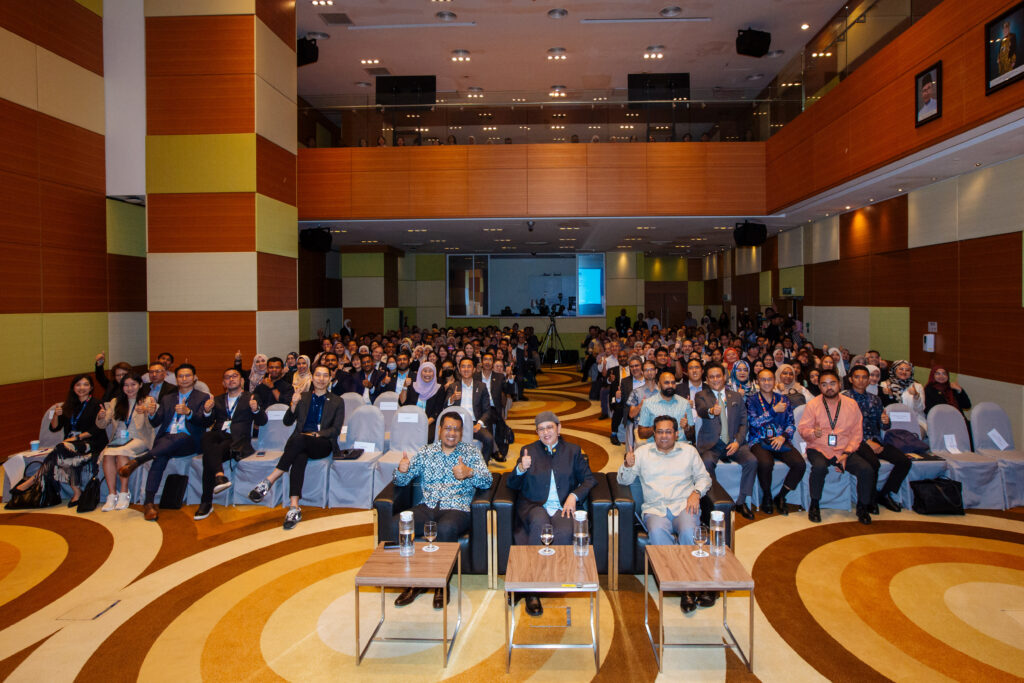
Malaysia is no longer on the sidelines of the sustainability conversation. It is shaping the agenda—through policy, investment, and public-private collaboration. The Forward Faster Symposium 2025 was not just a conference; it was a signal to the world that Malaysia is ready to lead.
“Commitments transmit from enterprise culture into individual thinking—and back again. They give us hope that regardless of size or location, every business can make a difference,” said Faroze.



